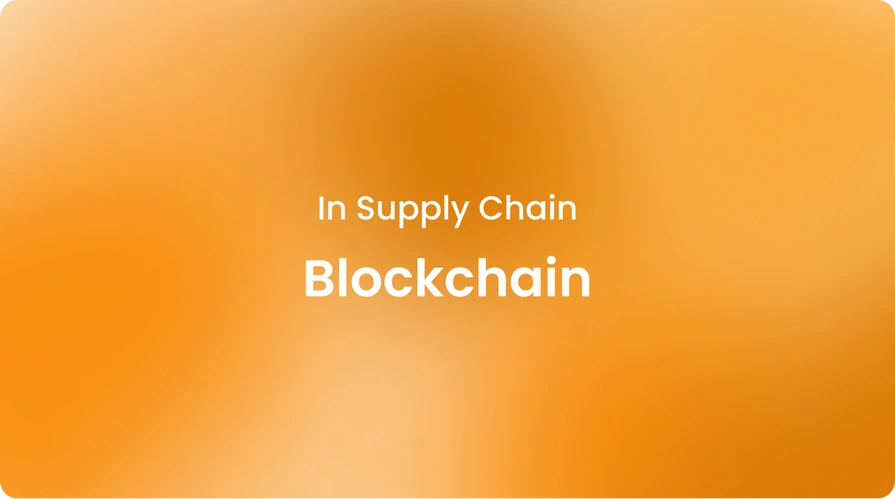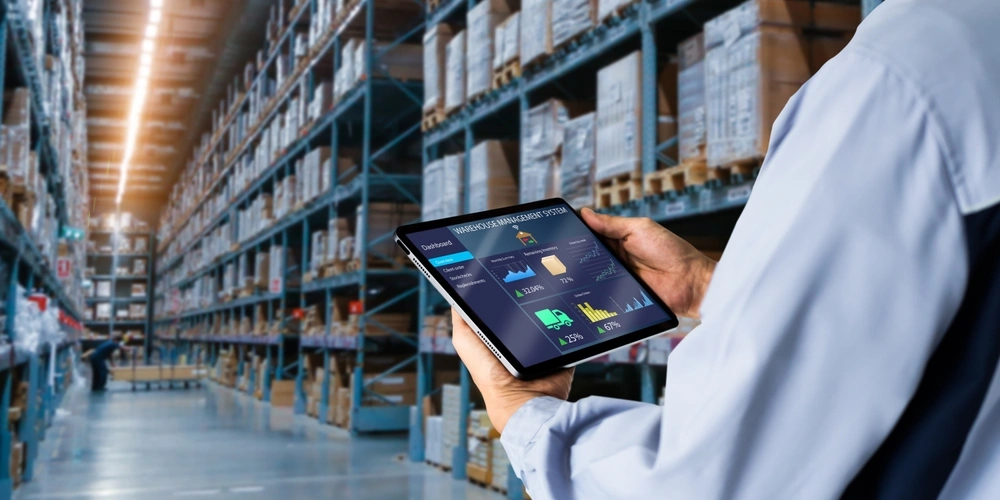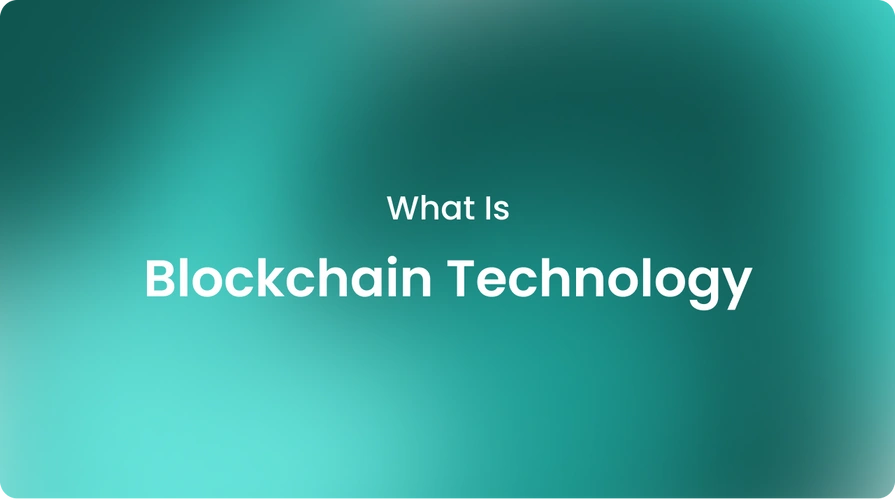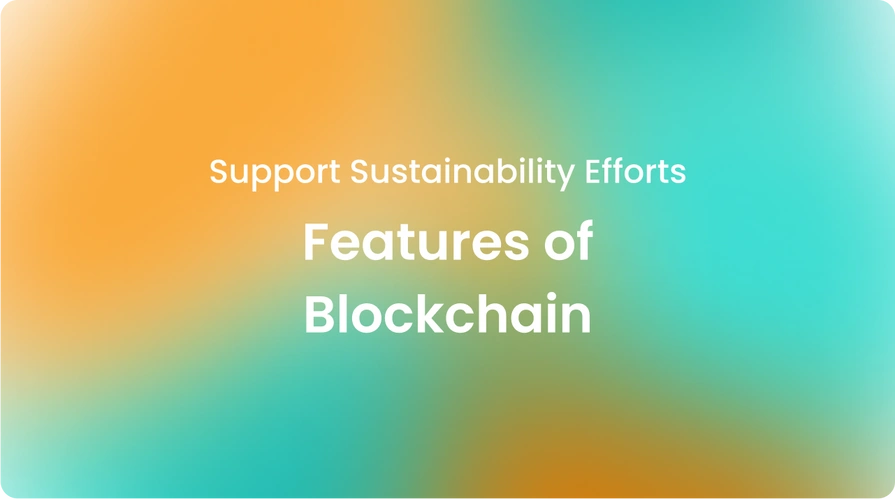|technology, knowledgehub
How Is Blockchain Used in the Supply Chain?

The use of blockchain in the supply chain has been transformative. Supply chain management has evolved tremendously over the past few decades due to advancements in technology and the ever-changing business landscape.
In this blog post, we will explore the basics of supply chain management, how blockchain works, and why this distributed ledger technology is poised to revolutionize supply chain processes. Let’s start!
What is a supply chain?
A supply chain refers to the network of organizations, people, activities, information, and resources involved in moving a product or service from suppliers to customers.
It traces the steps a product takes, from raw material acquisition to production, all the way until it reaches the hands of the end consumer.
Manufacturing companies have complex supply chains that span the globe in order to acquire materials and components from various suppliers at the lowest possible cost.
What is supply chain management?
Supply chain management (SCM) is the oversight of materials, information, and finances as they move in a process from supplier to manufacturer to wholesaler to retailer to consumer.
Effective SCM is critical for businesses to forecast demand, ensure steady inventory, and satisfy customer needs. Key aspects of SCM include procurement, planning, manufacturing, distribution, and reverse logistics processes.
How does blockchain enable end-to-end supply chain visibility?
Blockchain distributes an immutable record of transactions across multiple computer networks. In supply chain management, it allows suppliers, manufacturers, transporters, and customers to easily share important information about a product's journey in a secure and trusted digital environment.
The blockchain records each transaction, such as manufacturing, quality inspection, and shipping details, sequentially. This allows for transparency into the lifecycle of a product from its origin.
For example, EURK is a euro stablecoin built on multiple blockchains. Using blockchain, EURK offers transparent transactions that are fast and secure. Backed 1:1 by real cash reserves in trusted banks, EURK enables more efficient cross-border payments and remittances for the supply chain.
What are the advantages of blockchain in the supply chain?
Blockchain provides several key advantages for supply chain management:
Transparency
All participants have access to the same information at all times, removing the need to reconcile different data sets. This boosts visibility into inventory levels, order status, and other critical data.
Traceability
The ability to trace an item's complete journey from source to consumer helps combat counterfeiting, verify certifications, and ensure standards compliance. Blockchain technology traceability can reduce food recalls by up to 67%, according to an IBM study.
Speed
Smart contracts automate routine tasks like crypto payments and documentation, accelerating workflows. A report estimates blockchain can slash cargo release times at ports from days to seconds.
Security
Immutable blockchains prevent retroactive alteration of historical records. This decentralization deters fraud and enhances cybersecurity compared to centralized databases.
Cost reduction
Greater visibility, automation, and fewer errors lower operating costs across areas like compliance, audits, fulfillment, and more. Estimates suggest costs could fall by 20–30%.
What are some disadvantages of blockchain in supply chains?
While blockchain provides major benefits, several disadvantages of blockchain in supply chains remain:
- Interoperability between different blockchain platforms is still limited, restricting the sharing of data across networks.
- The startup costs of redesigning processes, adding new infrastructure, and training staff can be substantial.
- Performance limitations of certain blockchains may impact transaction speeds for heavily trafficked supply networks.
- The immaturity of the technology means standards and best practices are still evolving for large-scale enterprise use.
- Governance challenges arise in defining roles, processes, and protocols for participants in distributed ledger systems.
However, as adoption grows and technology advances, most experts agree that these issues will diminish over time. Early movers that invest in blockchain stand to gain the most long-term competitive advantages.
What is a blockchain supply chain example?
The food and agriculture industries are exploring how blockchain technology for the supply chain could reduce waste and spoilage through real-time tracking of goods.
For a real-world example, Danish shipping giant Maersk and IBM are using blockchain to digitize supply chain information for food giant Nestlé.
Nestlé can now trace milk from the farm to the supermarket shelf. Other notable implementations include tracking diamonds and metals, tracing pharmaceutical drugs, and managing global shipments of tech components.
Why is blockchain important for the supply chain?
As mentioned earlier, traditional supply chain management relies on error-prone manual record-keeping and centralized data silos shared between trading partners only after significant delays. This obscures visibility into inventory flows and undermines the ability to respond swiftly to disruptions.
Blockchain in the supply chain is crucial because it resolves these issues by establishing a shared, immutable record visible to all members in real-time.
This level of transparency, traceability, and efficiency is unlocking major benefits related to reducing costs, improving compliance, accelerating transactions, combating counterfeiting, and boosting customer satisfaction.
Blockchain is essentially driving a "fourth industrial revolution" across global commerce and logistics. If you need more information about blockchain, check out “Blockchain wallet,” “BaaS,” and “Blockchain payment solutions." You can also follow CBQ blogs and case studies!
What is the impact of blockchain on supply chain management?
Studies show blockchain will profoundly impact supply chain management in several ways. Blockchain for the supply chain can give organizations end-to-end visibility to combat issues like counterfeiting and speed up traceability events.
By making every transaction and document instantly visible to all partners, the technology slashes reconciliation times, eliminates paperwork, and frees trapped working capital. This lowers supply chain costs by an estimated 15–30%, according to many reports.
Increased visibility also helps identify and remove inefficiencies in workflows. Data-driven smart contracts can automate routine tasks to further accelerate processes. Blockchain further cuts food waste and spoilage by enabling precise replenishment based on real-time consumption analytics.
The increased traceability brings legal and reputational protection while boosting sustainability. You can check “Features of blockchain that support sustainability efforts” for more details about this subject. The supply chain stands to greatly benefit from these effects of distributed ledger technology adoption.
How does blockchain solve supply chain problems?
As we described in earlier sections, blockchain tackles core supply chain problems like lack of end-to-end visibility, slow manual processes, security vulnerabilities, compliance issues, and an inability to track items globally.
Blockchain provides a single, consensus-based record shared across trading partners in real-time, establishing transparency that was not possible before. Smart contracts automatically execute routines like conditional payments.
Immutable, time-stamped records are tamper-proof, resolving disputes and deterring fraud. Serialization and origin verification powered by blockchain attributes can detect counterfeits.
Implementing a blockchain for supply chain management allows the automation of routine processes through smart contracts. These features address the major pain points currently hindering the efficient operation of distributed system networks worldwide.
How does blockchain reduce supply chain costs?
Blockchain cuts costs by streamlining activities and improving productivity. Removing paperwork, automating inspections, and eliminating redundant data entry drastically reduce man-hours.
Fewer errors also mean less waste and rework. Smart contracts autonomously execute processes and optimize resource utilization.
All this translates directly to lower expenses for compliance, audits, fulfillment, and throughout the extended business network. Estimates suggest a combined 20–30% fall in supply chain costs.
Which blockchain is best for the supply chain?
The “best blockchain” depends on the specific use case and size of the supply chain implementation. When choosing the best blockchain for the supply chain, organizations should consider which distributed ledger technology meets interoperability, scalability, and functionality requirements for their network.
Large enterprises typically opt for permissioned platforms for their control and customization advantages. Others providing supply chain solutions include open-source alternatives and emerging networks focused on scale.
No single winner currently exists as the technology matures and adopters experiment to discover the best technical, economic, and structural fits for their scenarios. The broader availability of blockchain as a service model makes experimenting with different models easier too.
Cryptobunq provides easy integration solutions to empower supply chain solutions with crypto benefits on any blockchain. As a one-stop-shop crypto service provider, CBQ offers custody and wallet, exchange API, batch payments, tokenization, node as a service, and more solutions with the power of blockchain.
You can integrate crypto services into your business with Cryptobunq and start using the benefits of cryptocurrency. The future lies ahead, and it is very promising in many different ways, including supply chain management and sustainability. You can adapt blockchain to your business with CBQ!
The bottom line
Blockchain is revolutionizing supply chain management by establishing a new standard of trust, transparency, and collaboration among trading partners globally. Early adopters gain first-mover advantages through reduced costs, heightened visibility, and proactive decision-making.
As blockchain continually improves interoperability and performance, more companies will surely adopt its ledger of truth to power their future distribution networks and unlock new supply chain efficiencies. The time is now to start exploring these powerful new solutions, and Cryptobunq is here for you.
Benefit your business with secure, effective, and decentralized blockchain solutions with CBQ. Contact us today, and be ready for the future prospects of blockchain technology!













